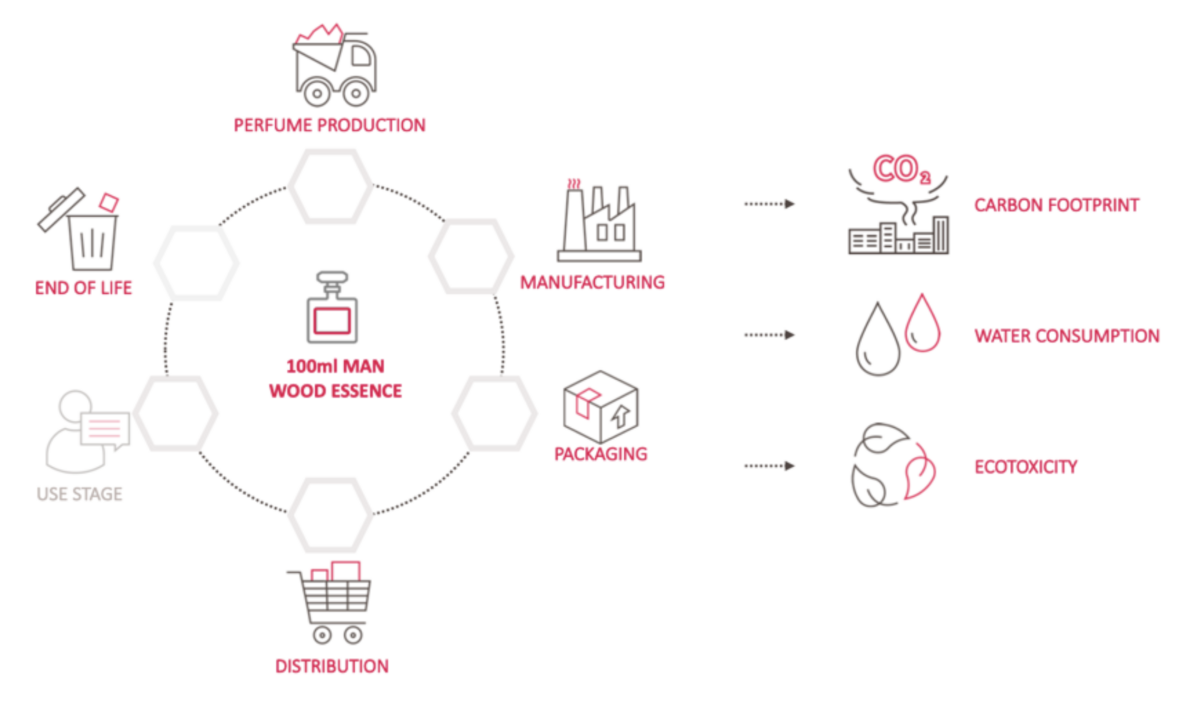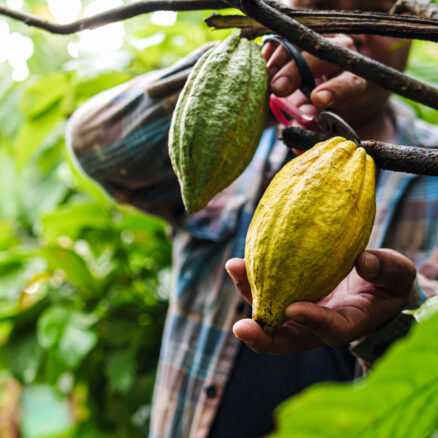BVLGARI takes a step forward in its journey towards sustainability by analyzing the environmental impacts occurring in its perfume value chain. The insights of the analysis formed the basis of the brand’s perfume sustainability strategy.

Challenge
BVLGARI, the Italian luxury brand known for its jewelry, watches, fragrances and leather goods, has committed to advance its environmental, social and ethical performance by embedding sustainability into its activities. One way the company is working to deliver on this commitment is by taking steps to reduce the environmental footprint of its products and exploring opportunities for circularity.
As part of this work, BVLGARI partnered with Quantis to perform a Life Cycle Assessment of its Bvlgari Man Wood Essence eau de parfum
The aim of the study was to highlight the product and its packaging’s main environmental, water and ecotoxicity hotspots along the whole value chain. The insights would be used to define good practices to be followed internally, not only for the Bvlgari Man Wood Essence, but also for the other perfume belonging to the brand portfolio.
Insights
Climate change, shifting lifestyles and stakeholder expectations around sustainability will define beauty for the next decade.
Brands that prioritize sustainability and transparency will come out on top. As a first step, brands need to assess their environmental impacts and whether they are operating within or beyond planetary boundaries.
Performing a product life cycle assessment for its Bvlgari Man Wood Essence eau de parfum provided BVLGARI with insights on its main environmental hotspots, laying the foundation for the creation of a robust, science-based sustainability strategy based.
We were delighted to work with Quantis. Performing a life cycle assessment on Bvlgari Man Wood Essence was an important step toward improving our understanding of its main environmental hotspots. Thanks to the collaboration with Quantis, we were able to identify clear actions and opportunities to further reduce the footprint of our products.
Valentina Villani, Perfume Environment Senior Manager, BVLGARI
Actions
To help BVLGARI understand the key environmental impacts of Bvlgari Man Wood Essence’s bulk, primary and secondary packaging, Quantis harnessed a life cycle assessment approach to perform a product footprint. In addition to measuring the product’s climate change impact, Quantis used additional environmental indicators such as water consumption and ecosystem quality to provide a comprehensive overview of the overall impacts.
Once the main environmental hotspots were identified, a series of sensitivity analyses were carried out. The additional analysis focused on different geographical areas for distribution and end of life, diversification of raw material sourcing and distribution methods.
The outcomes will be used by BVLGARI to define the future good practices to be followed.
Impact
The results of the study enabled BVLGARI to identify and prioritize the areas and issues with the greatest potential for improvement, such as climate change.
- The assessment highlighted the possible impact reductions related to raw material sourcing, which can be applied to all perfume in the brand’s portfolio.
- The primary and secondary packaging analysis identified the different trade-offs related to the materials.
- The results also demonstrated how it is possible for the brand to optimize the product life cycle, such as considering sustainability during the product design phase and improving collaboration with main suppliers.

We’re your full-service partner for the transformational journey. Our strategic advisors are equipped to guide you at every point along the way.



